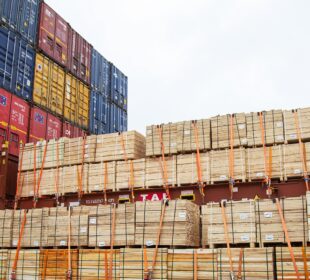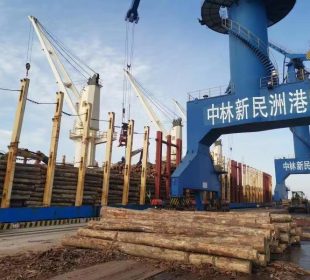In May, the European Commission (EC) published a comprehensive independent evaluation of theEU FLEGT Action Plan. The Plan encompasses the wide range of EU policy measures introduced over the last decade to support good forest governance and remove illegal wood from trade, ITTO reported.
The report suggests there is general recognition that VPA negotiation and implementation, strongly supported by EFI, the EC and EU Member States, have helped to sharpen the legality definition, and this has been valuable, even if no functioning TLAS has been produced.
The VPA Survey revealed that three VPA implementing countries acknowledge the positive effect of the legality definition process on the development of the TLAS. And despite the challenges, two countries – Ghana and Indonesia – now have systems very close to operational.
Another observation is that the Action Plan’s contribution to the objective of sustainable forest management is unclear and needs to be made more explicit. According to the report, available data suggest that the TLAS under development are not necessarily enhancing more sustainable forest management (SFM) or SFM certification, and that this is not envisaged by many stakeholders in VPA countries.
There’s also a concern that FLEGT needs to focus more on domestic timber markets and support for the actors operating in them. This is seen as critical to the broader FLEGT objective of contributing to poverty reduction.
Slow EUTR implementation weakens incentives
Considering the EU demand side, the report echoes many of the conclusions of the EU review of the EU Timber Regulation published earlier this year. The report suggests there is a widespread perception that EUTR has been implemented slowly and unevenly and that this is decreasing incentives for VPA countries to commit to finalising FLEGT licensing systems.
The report notes that “while advances have been made [on EUTR implementation], there have been major differences between front-runner [EU] countries and slow followers.
This has resulted in unfair competition between Member States, inconsistent market requirements for the private sector in producer countries and a risk that VPAs would lose their value and the EC some of its credibility”.
The report goes on to suggest that the capacity of most EUTR authorities is considered rather limited, in terms of staff numbers, budgets and training. In important timberimporting countries, such as the Netherlands and Belgium, only three and half a full-time equivalent staff, respectively, has been assigned to EUTR enforcement.
It’s noted that while big EU companies started developing due diligence (DD) systems at an early stage - which had sometimes resulted in a significant reduction in their number of suppliers - and were ready to exercise DD when the EUTR came into force, the vast majority of companies across the EU applied a “wait and see” mentality.
Unless there is effective implementation, control and prosecution on the one hand, and sufficient and clear guidance on the other, especially the SMEs seem unlikely to change their practice.














